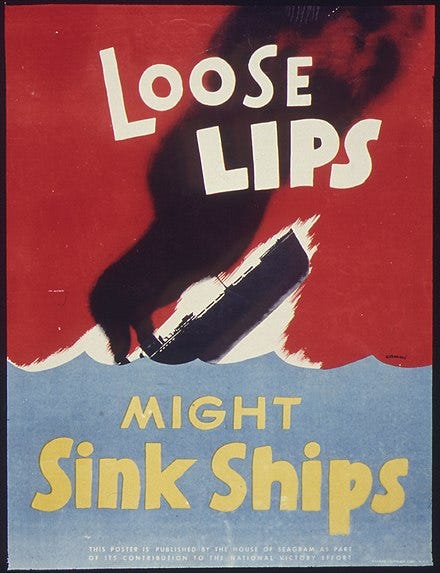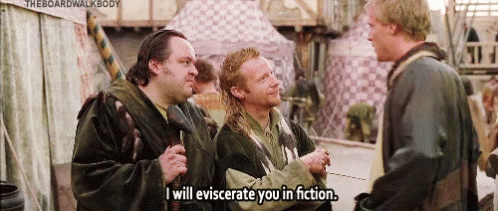They are the hunters we are the foxes, and we run!
Deep Dive episode on "I Know Places" out now!
This week we’re covering “I Know Places” from 1989 (Taylor’s Version). Who’s running? Why are they running? What are the places they’re trying to get to? Does she actually know a place to hide? This is a dark and anxious song and we have questions! We explore how Taylor Swift uses metaphors to help make the relationship she’s singing about relatable. Then we examine how the music changes between the verses and the choruses, from anxious and scared to romantic and beautiful. And we’re left trying to answer the question: is this a reliable narrator? Tune in to find out!
👀 Sneak Peek
🛍️ Shop With Us! Active Discount Codes
As we grow, we are so excited to announce new partnerships! Here you’ll find active discount codes available to our listeners.
🔉Libro.fm - Support your local bookstore while listening to great audiobooks.
Code: APTS
Offer: Get a free audiobook when you start a new membership (you must use this link!)
Receive 2 audiobook credits for $14.99 USD with your first month of membership.Code: APTS30
Offer: 30% off specific audiobooks in the AP Taylor Swift playlist.
✨ Krowned Krystals - Make the whole place shimmer with the best rhinestones
Code: APTS
Offer: 10% off your order when you use the link above
🎒This Week’s Extra Credit - Brought to you by Jenn
“All’s fair in love and poetry.”
We discussed this line in our bonus episode about The Tortured Poet’s Department announcement, but it’s a line that’s really stuck with me. Is it a declaration of war? Is it a sense of resignation, of accepting a new reality? I don’t have a firm opinion yet (if you do though, let us know in the comments!), but after reflecting more on our deep dive into “I Know Places,” it’s interesting to see how her poetic representation of war has developed. Let’s look a bit at the journey of these metaphors from “I Know Places” to The Tortured Poets Department!
“Loose Lips Sink Ships”
Colloquially, we understand this phrase to mean that careless talk or gossip can cause greater issues, and therefore it’s best to avoid it. But did you know it originated as a wartime slogan during WWII?
The image above makes it a pretty powerful slogan. The message is clear: if you say the wrong thing to the wrong person, lives are at stake. However, not only was this slogan meant to prevent espionage, but it was also to help control the narrative around the war. According to leaders, gossip could ruin morale and they didn’t want that either. So from saving lives to a PR campaign, this phrase has an interesting origin.
In “I Know Places,” the protagonist is positioned as the “prey” here, but using “loose lips sink ships” does lean into this war idea as well. It’s definitely a violent song too. “'Cause they got the cages, they got the boxes / And guns” is not a chill line. Clearly, relationships are a battle here. They come with real risk. They require a strategy to win. This song even creates a sense of good vs. evil, which is often how fiction treats wars (although we all know reality is much more complicated than that).
Something I find particularly interesting about this song is that if this is a battle/war metaphor, our protagonist and their romantic partner are absolutely retreating. This is not a battle they are trying to fight. They are fleeing. A strategic retreat is a real tactic, but as we move forward, let’s see if that’s the stance she continues to take in this metaphor.
“The Great War”
Taylor’s discography has plenty of battle/war lyrics, but “The Great War” is pretty undeniably a war metaphor, so let’s hop there next. Honestly, this song deserves a deep dive in the future because its imagery is fascinating, but we have a few obvious war references. For example, “Tore your banners down, took the battle underground” and “You drew up some good faith treaties.” These images add to the intensity of the fight and, I would argue, the importance of it. The result of wars can change the course of history.
In the first song, the protagonist and their romantic partner are on the same side, retreating. In this song, the war is much more internal and the protagonist is facing it head-on. Lines like “Sucker punching walls, cursed you as I sleep-talked” are a far cry from “And we run” from “I Know Places.” The protagonist is partaking in the violence here.
While this song does still show a desire for peace - “I vowed not to fight anymore / If we survived the Great War” - it is overall a more complicated relationship between the protagonist and the battle. She isn’t running away from it, but she seems to be reluctant to face it too.
The Tortured Poet’s Department
Ah, then we get to the most recent era where “all’s fair in love and poetry.” Of course, this phrase is a rewrite of the more well-known phrase “all’s fair in love and war,” which is a phrase that does quite a bit. First, it equates love with war - two things that seem quite different at first glance. While Taylor is incredible, she certainly isn’t the first to make the connection between war and romantic relationships. Second, this phrase raises love and war above any rules or regulations that we have. The idea is that these things are too big and too important. People shouldn’t hold back in these areas.
Now, Taylor changes this to “all’s fair in love and poetry.” Personally, I think she is equating the concept of “poetry” to “war” in this change. Instead of physical weapons, Taylor is using poetry. It reminds me of another famous saying - “the pen is mightier than the sword.” To make an even more bizarre reference, it reminds me of the scene in A Knight’s Tale when Geoffrey Chaucer’s character threatens two men who mistreated him. His threat though isn’t physical, but rather poetic. He warns them that he will immortalize them as villains forever by writing them into his stories.
Now we’ve really taken a turn in Taylor’s relationship to war. We’ve gone from retreating to tentatively engaging to essentially declaring war with her announcement of this album. What does this mean or how did we get here? That’s a bigger question that I don’t have an answer to, but I think it’s a fascinating one.
If I were to answer right now though, I think it feels like a woman in her thirties who has officially hit the point of caring more about defending and protecting herself than managing other people’s emotions. It's kind of an “if it’s war you want, then war you’ll get” stance. Maybe that’s just me, a woman in her thirties, projecting. Either way, growing up with Taylor has been fantastic, and this new era is only beginning. Check back with me after a few dozen more listens to the album, and I’m sure I’ll have another answer. That’s the joy of good art. The more you sit with it, the more it changes and grows with you!





